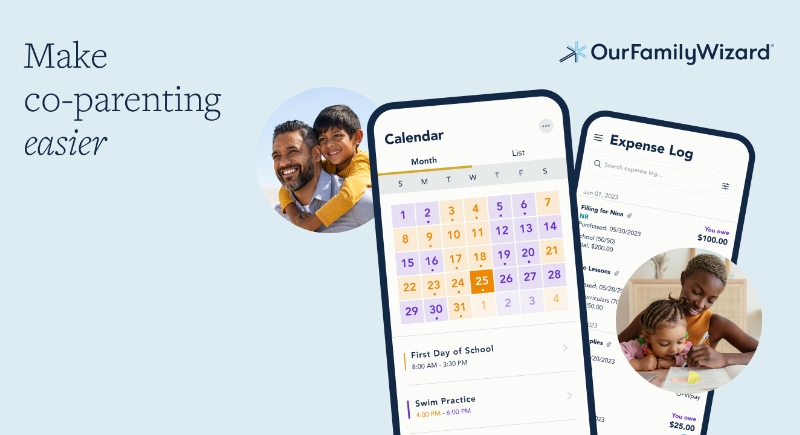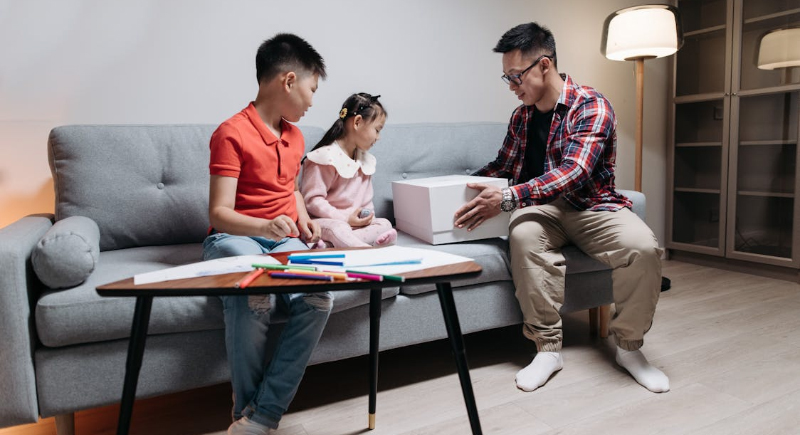15 golden rules for peaceful co-parenting after a divorce
Parenting after a breakup is hard, and it can sometimes feel like trying to steer two ships in the same direction without bumping into each other. But peaceful co-parenting is possible even after divorce. What you need is the right mindset and a few smart habits to share parenting duties without constant drama.
Keep Kids Out of Adult Conversations

Credit: iStockphoto
Children shouldn’t carry messages between homes, play referee during arguments, or hear complaints about one parent from the other. When adults loop kids into grown-up problems, it puts emotional strain where it doesn’t belong.
Make Your Child’s Needs the North Star

Credit: pexels
Custody calendars and carpool swaps should orbit one core idea: what’s best for the child. That might mean making changes you don’t love. When kids see both parents cooperating (even through gritted teeth), they feel more stable in a situation they didn’t choose.
Stick to a Consistent Routine Between Homes

Credit: pexels
Kids adjust better when the expectations at each house don’t feel wildly different. Bedtimes, screen limits, and chore expectations don’t need to match perfectly, but some consistency helps reduce confusion. Predictability gives children a sense of control, and that’s especially important during transitions.
Communicate Like You’re at Work

Credit: pexels
A professional tone goes a long way. Keeping texts clear, requests polite, and emotions out of the chat keeps things moving forward. “Can we adjust Sunday’s pickup to 5?” rather than “You’re always changing plans.” You’re not trying to win, but making logistics less of a headache.
Use Tools That Minimize Miscommunication

Credit: Facebook
Apps like OurFamilyWizard or TalkingParents exist for a reason: to reduce miscommunication and track parenting plans. They’re especially helpful if texts tend to go missing or get emotional. Think of it as neutral territory that keeps receipts and avoids drama. They also help create a paper trail when needed.
Show Up for the Small Stuff, Not Just the Big Moments

Credit: pexels
Kids may forget which parent bought them sneakers, but they remember who cheered from the bleachers. Being present at school plays, parent-teacher meetings, or band recitals helps reinforce that both parents are still a steady presence, even if the family structure has changed.
Keep Financial Conversations Transparent

Credit: pexels
Nothing stirs tension faster than money surprises. Clarity is key, whether it’s splitting extracurricular costs or agreeing on medical bills. Written records can reduce future misunderstandings and help both sides feel like things are balanced.
Let Go of One-Up Parenting

Credit: pexels
Spoiling kids with toys or relaxed rules to “win them over” only backfires in the long run. Children don’t need competition, and more importantly, parenting isn’t a popularity contest, and kids can tell when it becomes one.
Avoid Making Assumptions Based on Secondhand Info

Credit: pexels
It’s easy to react when a child says, “Dad didn’t feed me dinner” or “Mom was on her phone all night.” But before letting emotions take over, take a breath. Children sometimes misinterpret, exaggerate, or test boundaries. Address concerns directly with your co-parent before jumping to conclusions.
Be Flexible When Life Throws a Curveball

Credit: pexels
Traffic delays, family emergencies, or weather can change plans. When both parents show flexibility, it signals goodwill and lowers resentment. Being generous with your time now may make your co-parent more understanding next time you’re the one running late.
Limit Surprises, Especially Big Ones

Credit: pexels
New partners, vacations, and custody swaps aren’t “surprise and see how it goes” moments. Give advance notice and discuss changes before they’re implemented. Everyone handles change better when it’s on the calendar.
Plan for Holidays Early

Credit: pexels
Celebrations often evoke strong emotions: nostalgia, stress, and expectation. Sorting out holidays at the last minute only adds fuel. Planning in advance gives both households time to prepare, avoid overlap, and maybe even alternate years with less drama.
Don’t Turn Your Child Into a Confidant

Credit: pexels
Vent to a friend, a journal, or a therapist, but not your child. Even subtle remarks like “he’s always late” or “she never listens” pull kids into adult emotions. Protecting their relationship with both parents helps them grow up with a stronger sense of self and emotional balance.
Keep Extended Family in the Loop

Credit: pexels
Grandparents, stepparents, and aunts may all want a role, but things can get messy quickly without clear boundaries. Decide together how the extended family will be involved and make sure no one undermines decisions. Supportive relatives can be a big help, but only if they’re included thoughtfully and respectfully.
Celebrate Wins

Credit: pexels
Some weeks, just getting through a handoff without a single raised voice is an achievement. You may have managed to talk through a sticky issue, or both showed up at a school event with zero friction. Those moments matter. Take a beat to recognize them even if nobody else does.